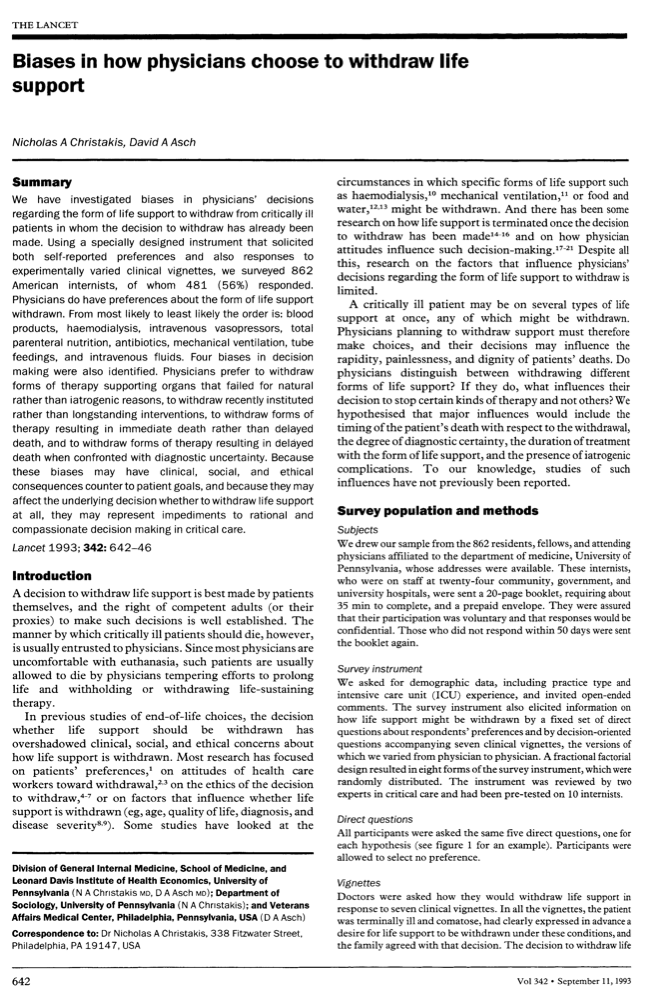
Biases in How Physicians Choose to Withdraw Life Support
Abstract
We have investigated biases in physicians' decisions regarding the form of life support to withdraw from critically ill patients in whom the decision to withdraw has already been made. Using a specially designed instrument that solicited both self-reported preferences and also responses to experimentally varied clinical vignettes, we surveyed 862 American internists, of whom 481 (56%) responded. Physicians do have preferences about the form of life support withdrawn. From most likely to least likely the order is: blood products, haemodialysis, intravenous vasopressors, total parenteral nutrition, antibiotics, mechanical ventilation, tube feedings, and intravenous fluids. Four biases in decision making were also identified. Physicians prefer to withdraw forms of therapy supporting organs that failed for natural rather than iatrogenic reasons, to withdraw recently instituted rather than longstanding interventions, to withdraw forms of therapy resulting in immediate death rather than delayed death, and to withdraw forms of therapy resulting in delayed death when confronted with diagnostic uncertainty. Because these biases may have clinical, social, and ethical consequences counter to patient goals, and because they may affect the underlying decision whether to withdraw life support at all, they may represent impediments to rational and compassionate decision making in critical care.
Citation:
N.A. Christakis and D.A. Asch, "Biases in How Physicians Choose to Withdraw Life Support" The Lancet, 342(8872): 642-646 (September 1993); reprinted in Monash Bioethics Review 13(3): 24-33 (July 1994)